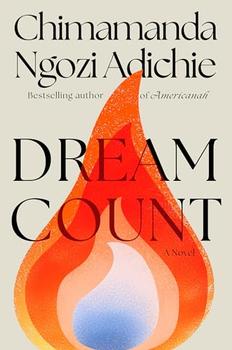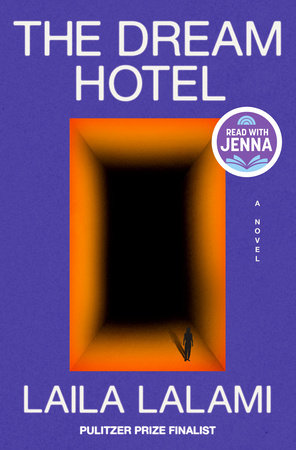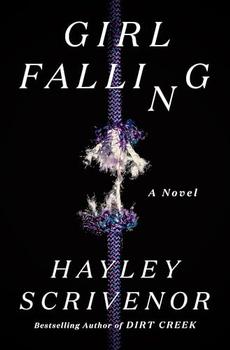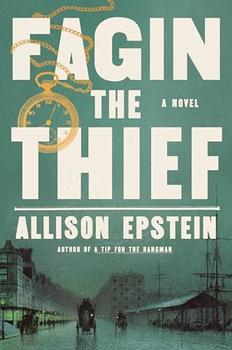Summary | Excerpt | Reviews | Readalikes | Genres & Themes | Author Bio

The Disturbing Story of the Government's Secret Plum Island Germ Laboratory
by Michael C. Carroll
If the tick is the perfect germ messenger, then Bb is an incredibly clever germ. Because its outside wall is hard to destroy, the bacterium can fight off immune responses and antibiotic drugs. Bb finds a home in the mouth and salivary glands of larvae and nymph ticks, and infects females' ovaries and the thousands of eggs they will lay after breeding while attached to deer (upon which Bb has little effect). Common in mice and birds as well, today there are five subspecies of Bb and over one hundred mutated substrains in the United States.
The question that experts haven't been able to answer is why this disease suddenly surfaced in Old Lyme, Connecticut, in the summer of 1975.
PROJECT PAPERCLIP MEETS PLUM ISLAND
"I do not believe that we should offer any guarantees to protection in the post-hostilities period to Germans. . . . Among them may be some who should properly be tried for war crimes or at least arrested for active participation in Nazi activities. . . ."
—President Franklin Delano Roosevelt (1944)
"To the victors belong the spoils of the enemy."
—U.S. Senator William L. Marcy (1832)
Dr. C. A. Mitchell began his remarks at the 1956 Plum Island dedication day by reminiscing on the late world war:
I often think and almost tremble at what could have taken place had our Teutonic enemies been more alive to this. It is said that some of their scientists pointed out the advantages to be obtained from the artificial sowing of disease agents that attack domestic animals. Fortunately blunders existed in the Teutonic camp as in our own. Consequently, this means of attack was looked upon as a scientific poppy dream. . . . If [as much] time and money were invested in biologic agent dispersion as in one bomber plane, the Free World would have almost certainly gone down to defeat.
The audience murmured in acknowledgment, but one dedication day VIP stirred uncomfortably—the director of the new virus laboratory in Tübingen, West Germany, personally invited by Plum Island Director Maurice S. "Doc" Shahan. The mind of the brown-haired man with the scar on his face and upper lip held a dark secret. He sat there perspiring, staring at Dr. Mitchell through his gray-brown eyes, wondering how many people knew his past.
For he—Dr. Erich Traub—was that "Teutonic enemy."
Strangely enough, he had every right to be there. He was one of Plum Island's founding fathers.
Nearing the end of World War II, the United States and the Soviet Union raced to recruit German scientists for postwar purposes. Under a top-secret program code-named Project PAPERCLIP, the U.S. military pursued Nazi scientistific talent "like forbidden fruit," bringing them to America under employment contracts and offering them full U.S. citizenship. The recruits were supposed to be nominal participants in Nazi activities. But the zealous military recruited more than two thousand scientists, many of whom had dark Nazi party pasts.1
American scientists viewed these Germans as peers, and quickly forgot they were on opposite sides of a ghastly global war in which millions perished. Fearing brutal retaliation from the Soviets for the Nazis' vicious treatment of them, some scientists cooperated with the Americans to earn amnesty. Others played the two nations off each other to get the best financial deal in exchange for their services. Dr. Erich Traub was troubleing on the Soviet side of the Iron Curtain after the war, and ordered to research germ warfare viruses for the Russians. He pulled off a daring escape with his family to West Berlin in 1949. Applying for Project PAPERCLIP employment, Traub affirmed he wanted to "do scientific work in the U.S.A., become an American citizen, and be protected from Russian reprisals."
From Lab 257 by Michael C. Carroll. Copyright 2004 by Michael C. Carroll. HarperCollins Publishers. Used by permission.
This excerpt starts at page 3 and ends on page 9 of the hardcover edition.



The Dream Hotel
by Laila Lalami
A Read with Jenna pick. A riveting novel about one woman's fight for freedom, set in a near future where even dreams are under surveillance.

Raising Hare
by Chloe Dalton
A moving and fascinating meditation on freedom, trust, and loss through one woman's friendship with a wild hare.

Jane and Dan at the End of the World
by Colleen Oakley
Date Night meets Bel Canto in this hilarious tale.

Girl Falling
by Hayley Scrivenor
The USA Today bestselling author of Dirt Creek returns with a story of grief and truth.

Fagin the Thief
by Allison Epstein
A thrilling reimagining of the world of Charles Dickens, as seen through the eyes of the infamous Jacob Fagin, London's most gifted pickpocket, liar, and rogue.

The Antidote
by Karen Russell
A gripping dust bowl epic about five characters whose fates become entangled after a storm ravages their small Nebraskan town.
Believe those who are seeking the truth. Doubt those who find it.
Click Here to find out who said this, as well as discovering other famous literary quotes!
Your guide toexceptional books
BookBrowse seeks out and recommends the best in contemporary fiction and nonfiction—books that not only engage and entertain but also deepen our understanding of ourselves and the world around us.